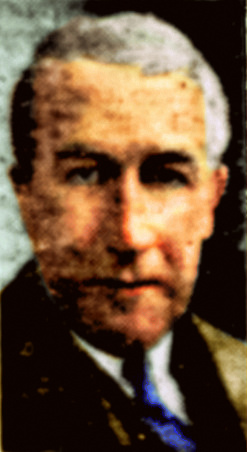The Pittsburgh Press (September 4, 1944)

Why we lost the peace –
Simms: ‘Unconditional surrender’ was ultimatum in 1918 too
Germans depended on ‘14 Points’ then, now they have Roosevelt’s ‘Four Points’
By William Philip Simms, Scripps-Howard foreign editor
This is the first in a series of articles on the mistakes made by the Allies at the peace table following the German surrender in 1918 – mistakes which laid the groundwork for World War II.
Washington –
The Allies have now reached Compiègne. There, on Nov. 11, 1918, occurred one of the most variously interpreted events in history. Yet a clear understanding of that event is necessary to further peace.
Today a certain magic is attributed to the formula of “unconditional surrender.” The surrender at Compiègne was unconditional. When Erzberger, Count von Oberndorff and the rest of the German mission stood before Marshal Foch in his private car on a siding in the woods, he eyed them coldly and demanded the nature of their visit.
ERZBERGER: “We have come to receive the Allied peace proposition.”
FOCH: (frigidly) “I have no proposition to make.”
OBERNDORFF: (hurriedly to forestall the gruff Erzberger) “We wish to learn what your armistice conditions are.”
FOCH: (icily) “I have no conditions to offer.”
ERZBERGER: (timidly) “But President Wilson–”
FOCH: (impatiently) “Do you or don’t you wish an armistice? If so, I am here to state the terms.”
Germans hear terms
Glumly, the Germans chorused, “Ja,” they wanted an armistice; whereupon Marshal Foch had the terms read off to them. Nor were they “soft.” On the contrary, they set the mission back on its heels. In addition to the occupation of the left bank of the Rhine, with bridgeheads, they called on the Kaiser to give up practically his entire war machine forthwith. When the Germans demurred, Marshal Foch told them they could take it or leave it and he set a time limit within which they were to answer yes or no.
Erzberger’s feeble effort to drag in President Wilson’s “14 Points” was promptly, and rightly, squelched. The 14 Points had nothing to do with the surrender of the Kaiser’s army; that had to be unconditional. The “points” were a concession to the German people and there was a tremendous difference.
Parallel situation
Today as the Allies face an almost parallel situation. Now as then, insofar as the German Army is concerned, the terms are “unconditional surrender.” But now, as then, the American President has offered generous conditions to the German people. Then, President Wilson put forward his “14 Points.” Now, President Roosevelt holds out his “Four Points” – which have something in common with the 14. President Roosevelt said:
We look forward to a world founded upon the four essential human freedoms. The first is freedom of speech… everywhere in the world. The second, is freedom of worship… everywhere in the world. The third, is freedom from want… of economy understanding which will secure it every nation a healthy peacetime life for its inhabitants… everywhere in the world. And, the fourth is freedom from fear with sweeping armaments reductions… everywhere in the world.
Patently these apply to the Germans no less than to others since “all nations” and all peoples are to enjoy them “everywhere in the world.”
There is just one difference between the Wilson and the Roosevelt formulas.
Where President Wilson used his 14 points to drive a wedge between the German masses and the Kaiser – and succeeded – President Roosevelt is putting his Four Points to no such effective use against Hitler.
TOMORROW: Why we did not occupy Berlin in 1918.